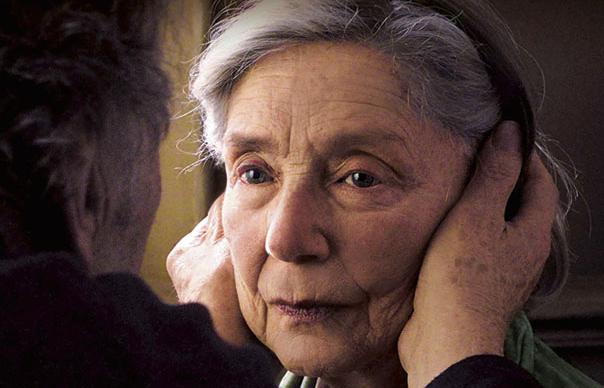Michael Haneke has often meted out cruel and unusual punishments to his characters. You might think of the middle class couple in Funny Games, an oppressed music professor in The Piano Teacher, or an entire town in The White Ribbon. Amour, however, provides a corrective of sorts.
No less uncomfortable to watch than his previous films, Amour is nevertheless both a poignant love story and a typically rigorous attempt to dismantle one of the last great taboos in cinema. To Haneke, love hurts. Georges (Jean-Louis Trintignant) and Anne (Emmanuelle Riva) are retired music teachers living in an elegant, book-lined Paris apartment. When Anne suffers a stroke, Georges promises to look after her at home; at first, there is gentleness and humour as they reconfigure their lives around Anne’s condition, but she begins to deteriorate. Georges effectively shuts them both off from the outside world – their daughter Eva, played by Isabelle Hupert, various carers and a former pupil are all shunned. “Your concern is of no use to me,” Georges tells Eva.
This is moving, but not sentimental filmmaking. Trintignant, best known for …And God Created Women, A Man And A Woman and Z, and Riva, the European lead in Alain Resnais’ Hiroshima, Mon Amour, are both remarkable. Riva allows Anne to be slowly, systematically, taken away from Georges, while Trintignant – now 82 – is almost heroic in his stoicism. Anne describes him as “a monster, also capable of great kindness.”
Michael Bonner


